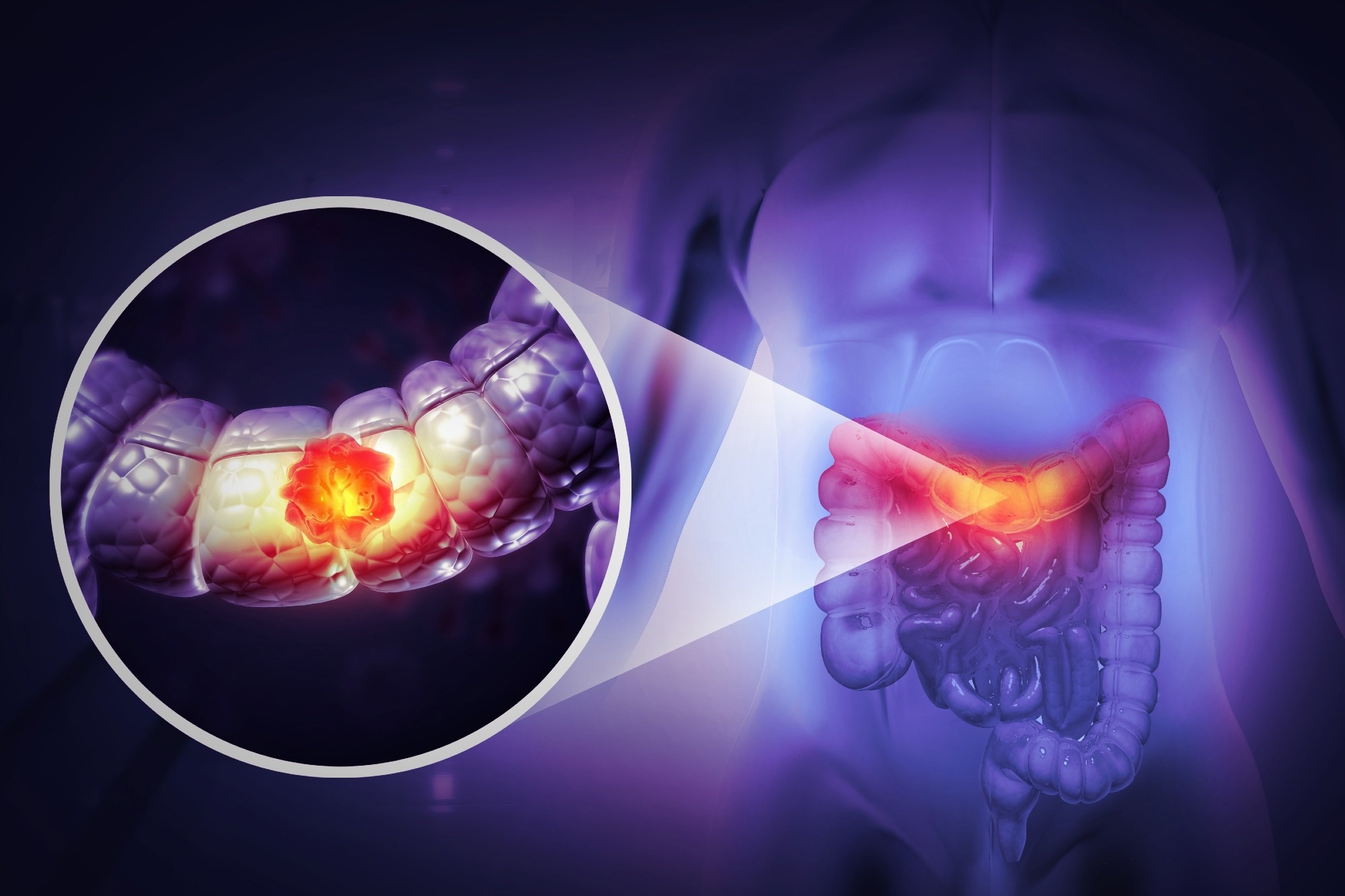Vitamin D’s anti-cancer powers go beyond bones, new findings reveal how it suppresses inflammation, boosts immune surveillance, and disrupts tumor development to guard against colorectal cancer.
 Study: Vitamin D and Colorectal Cancer Prevention: Immunological Mechanisms, Inflammatory Pathways, and Nutritional Implications. Image Credit: crystal light / Shutterstock.com
Study: Vitamin D and Colorectal Cancer Prevention: Immunological Mechanisms, Inflammatory Pathways, and Nutritional Implications. Image Credit: crystal light / Shutterstock.com
A recent study in the journal Nutrients reviews the role of vitamin D in the development of colorectal cancer (CRC).
Vitamin D: Synthesis, forms, and properties
Vitamin D is a steroidal hormone derived from 7-dehydrocholesterol in the skin following exposure to sunlight. The biologically active form of vitamin D is 1,25-dihydroxyvitamin D (1,25(OH)2D), which is synthesized in the kidneys under strict hormonal regulation.
The two main forms of vitamin D are D3 and D2. Vitamin D2, produced by plants and fungi, is significantly less effective than vitamin D3.
Vitamin D3, which is otherwise known as cholecalciferol, is the primary form of vitamin D that is critically involved in calcium and phosphorus homeostasis. Vitamin D3 also induces apoptosis, immunomodulation, reduces inflammation, and exhibits anti-angiogenic activity.
Calcitriol is the active form of vitamin D, which binds to vitamin D receptors (VDRs) to regulate gene expression. Calcitriol is involved in metabolism, suppressing autoimmune responses, as well as cell proliferation and differentiation.
Vitamin D deficiency and colorectal cancer
Insufficient vitamin D synthesis often occurs during winter months or among individuals residing in regions with latitudes exceeding the 35th parallel, where sunlight exposure is inadequate. In addition to sunlight exposure, vitamin D synthesis is also dependent on skin pigmentation, age, and sunscreen use.
Every year, approximately 1.2 million new CRC cases are reported. Multiple environmental and genetic factors are implicated in the development of colorectal cancer (CRC), including aging, diets rich in fats and red meat, sedentary lifestyle, and gut microbial dysbiosis.
A higher abundance of Fusobacterium nucleatum, a pathogenic bacterium, has been observed in CRC patients. Comorbidities like obesity, diabetes, inflammatory bowel diseases, and frailty also increase the risk of CRC.
Vitamin D has inherent anti-inflammatory, antioxidant, and anti-carcinogenic properties, which can inhibit cancer cell proliferation, as well as decrease tumor invasiveness and metastatic potential. In fact, vitamin D deficiency has been shown to exacerbate intestinal inflammation and promote CRC progression.
The preventive properties of vitamin D against CRC
Sufficient vitamin D levels are essential for maintaining immune function and reducing the risk of developing colorectal cancer (CRC). A recent meta-analysis revealed that higher serum 25(OH)D levels were associated with a 39% reduced risk of colorectal cancer (CRC).
Calcitriol exerts anti-tumor effects through several CRC-specific mechanisms, including the induction of apoptosis, inhibition of cancer cell proliferation, anti-angiogenic activity, and promotion of cellular differentiation. Calcitriol also regulates the expression of various genes involved in cell cycle control, immune response, and apoptosis through autocrine and paracrine mechanisms, ultimately suppressing CRC tumor growth and progression.
Calcitriol maintains intestinal epithelial cell differentiation and integrity, which is crucial for preventing colorectal cancer (CRC). Moreover, calcitriol triggers G1 cell cycle arrest, decreases CRC cell proliferation, and restores sensitivity to tumor suppressors, such as tumor necrosis factor-beta (TNF-β).
Calcitrol induces cell death by inhibiting anti-apoptotic proteins and promoting the expression of pro-apoptotic proteins. Calcitriol also limits the tumor’s blood supply and regulates the Wnt/β-Catenin pathway, which is hyperactivated in colorectal cancer (CRC).
Vitamin D exerts immunoregulatory effects by suppressing pro-inflammatory T-helper cells, particularly T-helper 1 (Th1) and Th17 lymphocytes, which play a crucial role in CRC development. Furthermore, vitamin D downregulates the production of pro-inflammatory cytokines, such as tumor necrosis factor-alpha (TNF-α) and interleukin-6 (IL-6), while simultaneously supporting the synthesis of anti-inflammatory cytokines, including IL-4, IL-10, and IL-13.
By inhibiting B-cell proliferation and differentiation into plasma cells, vitamin D reduces the generation of autoantibodies and immunoglobulins, thereby preventing chronic inflammation that increases the risk of CRC. Vitamin D also increases macrophage function by improving chemotaxis and phagocytosis, which facilitates the elimination of pathogens and malignant cells.
Does vitamin D supplementation reduce CRC risks?
Vitamin D supplementation decreases CRC risk by suppressing tumor growth and increasing anti-tumor immunity.
Vitamin D supplementation modulates the gut microbiota, enhances immune responses, strengthens intestinal barrier function, inhibits tumor cell proliferation, and reduces inflammation, all of which contribute to a lower risk of developing CRC and other types of cancer.
Previously, 4,000 IU of vitamin D3 supplementation for twelve weeks has been shown to improve the gut microbiome composition significantly. In fact, serum 25(OH)D levels of 20 ng/mL or greater have been associated with more prolonged CRC survival and recurrence-free periods, whereas low vitamin D levels less than 30 nmol/L were associated with significantly lower CRC survival rates.
Journal reference:
- Fekete, M., Lehoczki, A., Szappanos, A., et al. (2025) Vitamin D and Colorectal Cancer Prevention: Immunological Mechanisms, Inflammatory Pathways, and Nutritional Implications. Nutrients 17(8), 1351. doi:10.3390/nu17081351